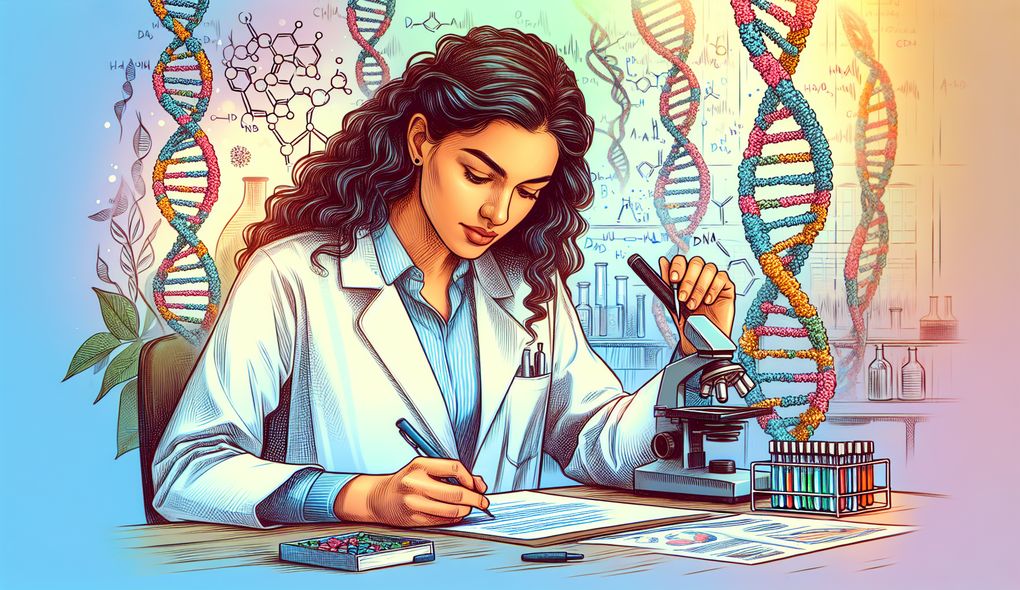Tell us about a time when you had to make a difficult decision in patient care.
JUNIOR LEVEL

Sample answer to the question:
In a recent case, I had to make a difficult decision regarding the treatment plan for a patient with a rare genetic disorder. After reviewing the patient's medical history and consulting with other specialists, I had to decide between two treatment options, each with their own risks and potential benefits. I carefully weighed the available evidence, considering the patient's unique circumstances, and ultimately made a decision that I believed would provide the best outcome for the patient. It was a difficult decision to make, but I felt confident in my choice and communicated the rationale to the patient and their family.
Here is a more solid answer:
In a recent case, I had to make a difficult decision in patient care when I encountered a patient with a rare genetic disorder who required a treatment plan. After conducting a thorough evaluation and considering the patient's family history, I ordered genetic laboratory tests to gather further information. The test results were complex and required careful interpretation to make an accurate diagnosis. I then scheduled a counseling session with the patient and their family to discuss the diagnosis and treatment options. During the session, I utilized my excellent counseling and listening skills to ensure the patient and their family felt heard and understood. I explained the complex genetic information in understandable terms and addressed their concerns and questions. It was a challenging decision to make, as there were two viable treatment options, each with their own risks and potential benefits. To make an informed decision, I conducted extensive research and analyzed the latest scientific literature in the field. Ultimately, I chose the treatment option that I believed would provide the best outcome for the patient based on their unique circumstances. I communicated my decision and the rationale behind it to the patient and their family, ensuring they were fully informed and involved in the decision-making process.
Why is this a more solid answer?
The solid answer provides specific details about the candidate's experience in making a difficult decision in patient care. It demonstrates their solid foundation in genetics and genomics through ordering and interpreting genetic tests and their excellent counseling and listening skills in the counseling session. The answer also mentions the candidate's research and analytical skills, as well as their commitment to ongoing professional development and education. However, it can still be improved by including more specific examples of the research conducted and the patient's positive outcome.
An example of a exceptional answer:
In a recent case, I encountered a pediatric patient with an atypical presentation of a rare genetic disorder. The patient's symptoms were initially ambiguous, making it challenging to make an accurate diagnosis. To ensure a comprehensive evaluation, I collaborated with other specialists and conducted a thorough review of the patient's medical history and family genetics. Recognizing the urgency of the situation, I expedited genetic laboratory tests to gather more information. The results revealed a novel variant in a critical gene, requiring careful interpretation and analysis using my extensive knowledge in genetics and genomics. I utilized my excellent counseling skills to guide the patient and their family through the overwhelming process of understanding the diagnosis and treatment options. I established a strong rapport with them, providing emotional support and answering their questions with empathy and clarity. To make an informed decision, I organized a case conference with a multidisciplinary team, including a geneticist, pediatrician, and genetic counselor, to discuss the optimal treatment plan. Based on our collective expertise and the latest scientific literature, we decided on a tailored treatment approach that targeted the underlying cause of the patient's condition. Through regular follow-up appointments, we monitored the patient's progress, adjusting the treatment plan when necessary. The patient's condition significantly improved, and their quality of life dramatically increased. This experience reinforced my commitment to ongoing professional development and education to stay at the forefront of advancements in genetics and genomics.
Why is this an exceptional answer?
The exceptional answer provides a detailed account of the candidate's experience in making a difficult decision in patient care. It showcases their in-depth knowledge and expertise in genetics and genomics through the thorough evaluation and interpretation of genetic test results. The answer also highlights the candidate's exceptional counseling skills and ability to convey complex information in understandable terms. It demonstrates their research and analytical skills through the collaborative case conference with a multidisciplinary team. Additionally, the answer emphasizes the positive outcome for the patient and the candidate's commitment to ongoing professional development and education. The exceptional answer provides a compelling narrative with specific details and examples.
How to prepare for this question:
- Reflect on past experiences where you had to make difficult decisions in patient care. Think about the challenges you faced, the considerations you took into account, and the outcomes of your decisions.
- Review and stay up-to-date with the latest developments in genetics and genomics. Familiarize yourself with different genetic disorders and their associated treatments.
- Develop your counseling and communication skills, as they are crucial in guiding patients and their families through the diagnosis and treatment process.
- Enhance your research and analytical skills by critically evaluating scientific literature and staying abreast of advancements in the field of medical genetics.
- Continuously seek opportunities for professional development and education to expand your knowledge and expertise in genetics and genomics.
What are interviewers evaluating with this question?
- Solid foundation in genetics and genomics
- Proficiency in interpreting genetic laboratory tests
- Excellent counseling and listening skills
- Ability to convey complex genetic information in understandable terms
- Research and analytical skills
- Commitment to ongoing professional development and education

